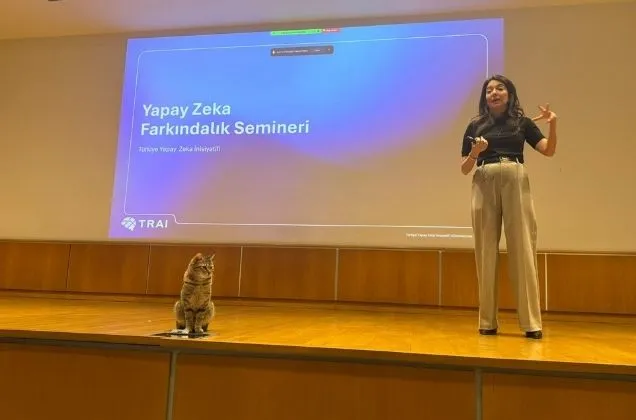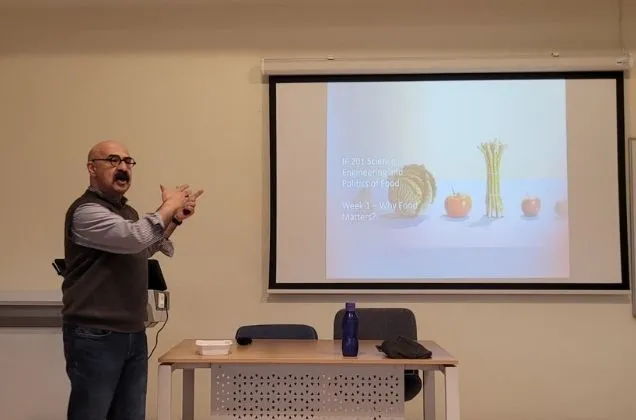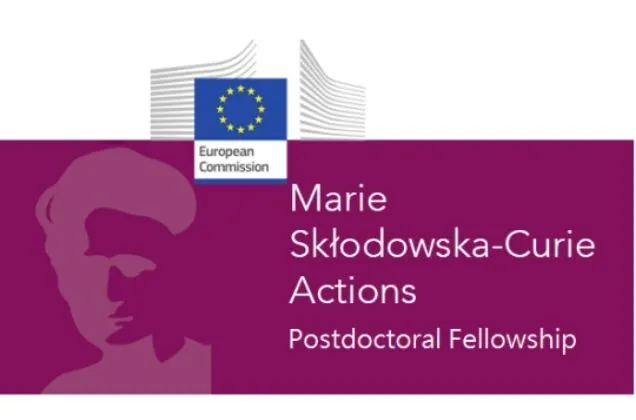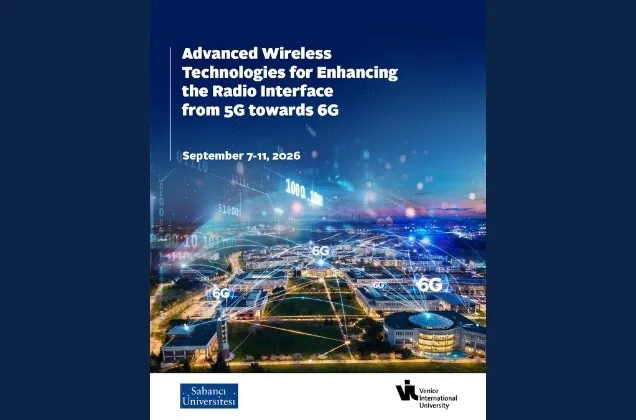15/10/2025
Sabancı University’s Foundations Development Directorate (FDD) organized the CCSR 2025 in collaboration with Amsterdam University College (AUC) Academic Core. FDD hosted the second Core Curriculum Summer Retreat between 15-19 September 2025.
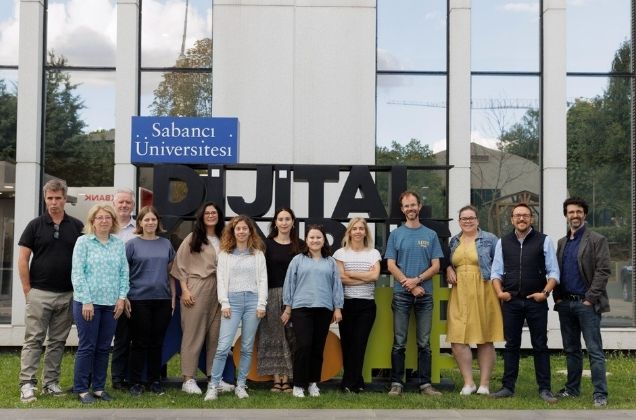
Over the course of 5 days, faculty, experts, and students from both institutions engaged in in-depth discussions on the transformative impact of artificial intelligence (AI) on higher education, the future of core curricula and interdisciplinary models of learning.
This year’s CCSR was designed as a comprehensive dialogue among faculty, students, and policy-makers on the opportunities and challenges presented by generative AI (Gen-AI). Discussions focused on teaching and assessment, ethics, institutional transformation, and AI literacy. The program coupled faculty presentations with roundtable discussions and sessions where students shared their perspectives and experiences, ensuring a diversity of perspectives on how universities can adapt to rapid technological change and improvement.
Participants included Prof. Mehmet Ali Alpar, Dr. Emre Erol, Dr. Duygu Karaoğlan Altop, Dr. Gizem Damla Çakmak, Dr. Matteo Paganin, Dr. Neriman Kuyucu Norman, Dr. Süphan Bakkal, Şerif Aziz Şimşir, and Dr. Yalçın Can Kılıç from Sabancı University; Dora Achourioti (Head of Academic Core), Breanndán Ó Nualláin, Dr. Joost Krijnen, Dr. Julia Hülsken, and Dr. Lotte Tavecchio from AUC; as well as Dr. Silvester Draaijer from the VU Centre for Teaching and Jacqui Edwards from the UvA Teaching and Learning Centre. Secretary General of AURORA Universities Alliance Dr. Ramon Puras also attended part of the event.
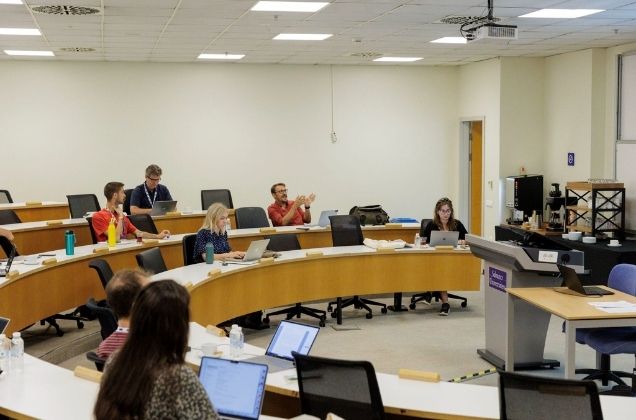
Sessions on AI and higher education highlighted the opportunities and risks associated with the technology. While participants pointed to AI’s potential to enrich teaching, reduce assessment load and foster new models of learning, they also underscored risks such as plagiarism, privacy violations, inequalities in access, and issues related to legal accountability. In this context, AI literacy was emphasized as a critical need for both students and faculty.
Panels on assessment and teaching strategies stressed the development of new guidelines for the integration of AI supported technologies, the adoption of project-based learning in logic and programming courses, and the importance of process-oriented assessment, particularly in writing-focused courses.
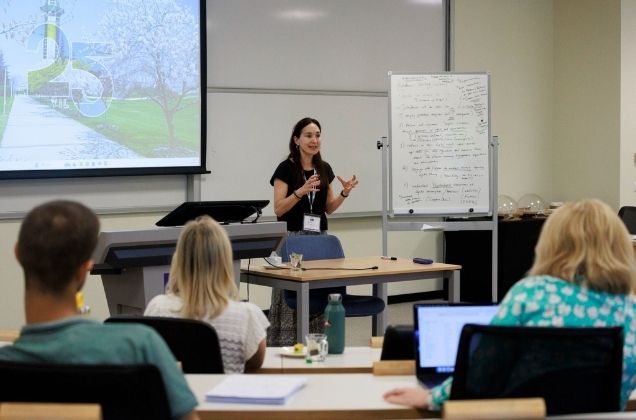
In sessions on governance, ethics and digital literacy, Sabancı University and AUC’s AI Task Force initiatives underlined the need for policies that balance flexibility, ethical principles and compliance with legal frameworks, including data protection regulations. Representatives of each task force noted that ethical debates around AI should extend beyond legal compliance to address broader issues including intellectual property, fairness, and equitable access.
Beyond the academic program, community-building activities were organized by the Civic Involvement Projects (CIP) team members Zeynep Bahar and Aslı Acar Geliş, which helped strengthen collaboration and interaction among participants. Additionally, a tour in Istanbul’s Historical Peninsula, led by Dr. Sinem Erdoğan İşkorkutan, offered international guests the opportunity to experience the city’s rich cultural and historical heritage.
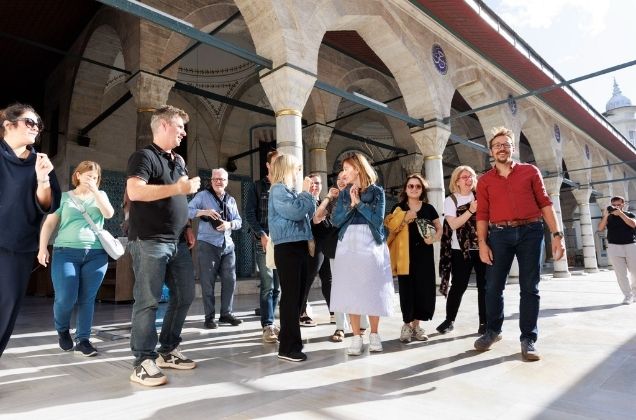
At the conclusion of the retreat, participants outlined key priorities: updating the core curriculum to strengthen interdisciplinarity, developing digital literacy programs for students and faculty, piloting AI-based course applications under robust ethical oversight, creating legally compliant AI usage policies, and advancing strategies for the adoption of open-source technologies.
The CCSR 2025 final report will be completed and published at the end of the year.
Click here to see the content created by the AUC.
Watch the CCSR 2025 video here.
* Vrije Universiteit Amsterdam.
* Universiteit van Amsterdam.

